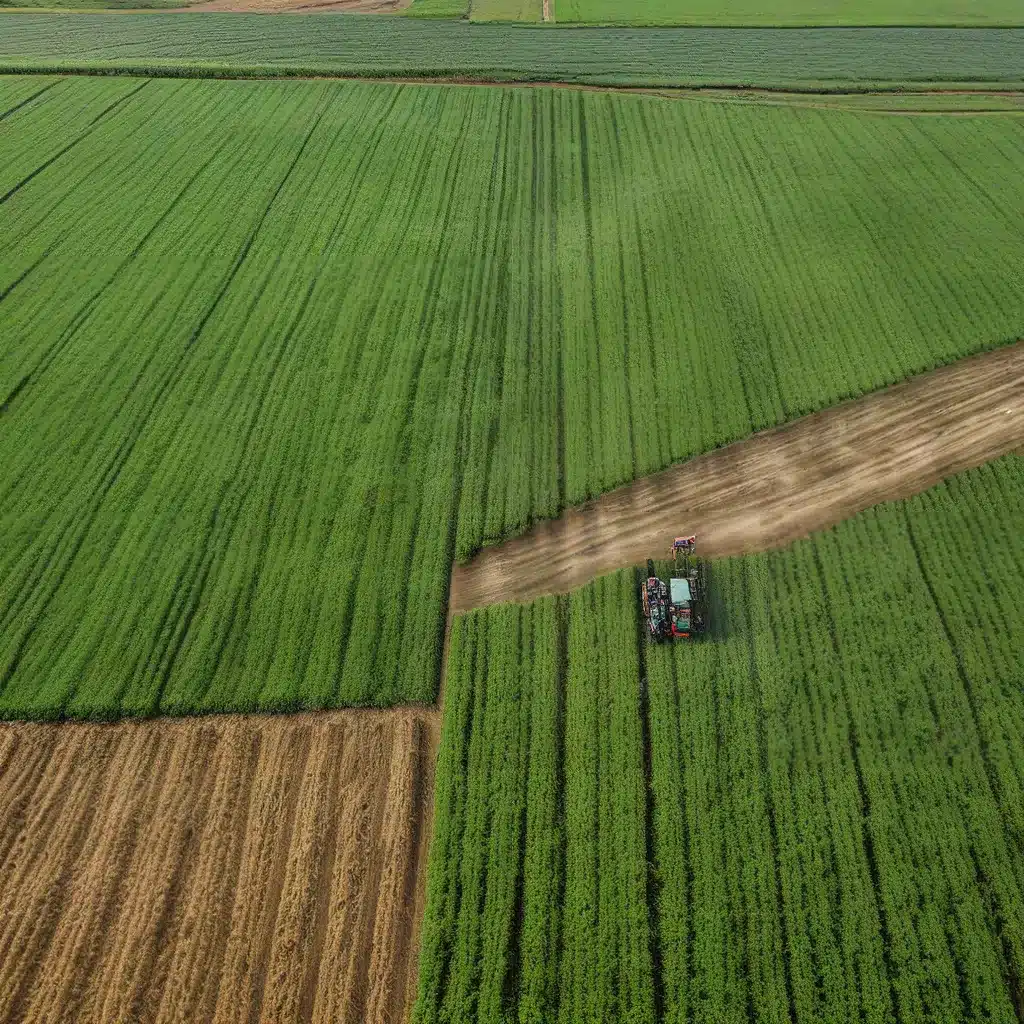
The Transformative Power of Sensor Networks in Agriculture
The agricultural industry has witnessed a remarkable transformation in recent years, thanks to the rapid advancements in sensor network technology. Precision farming, a term that has gained significant traction, leverages the power of sensor-driven data to revolutionize the way farmers manage their operations. By strategically deploying a network of sensors across their fields, farmers can now monitor and optimize a wide range of variables, from soil moisture and nutrient levels to environmental conditions and crop health.
One of the primary drivers behind the adoption of sensor-enabled precision farming is the need to maximize resource utilization and improve crop yields in the face of increasing global food demands and environmental challenges. Traditional farming methods often rely on intuition and generalized practices, leading to inefficient use of resources and suboptimal crop production. However, by integrating sensor networks into their operations, farmers can now make data-driven decisions that optimize water usage, fertilizer application, and pest management, among other critical factors.
The Diverse Applications of Sensor-Enabled Precision Farming
Sensor networks in agriculture have a wide range of applications, each contributing to the overall efficiency and productivity of modern farming practices. Some of the key applications include:
-
Soil Monitoring: Sensors placed in the soil can continuously monitor parameters such as moisture content, nutrient levels, and pH, providing farmers with real-time data to make informed decisions about irrigation, fertilization, and soil management.
-
Crop Health Tracking: Sensors can be used to monitor the health and growth of crops, detecting early signs of disease, pests, or environmental stress. This allows farmers to address issues proactively and optimize their crop yield.
-
Environmental Monitoring: Sensors can be deployed to track various environmental factors, such as temperature, humidity, wind speed, and precipitation, enabling farmers to adjust their practices to accommodate changing weather patterns and climatic conditions.
-
Livestock Management: In livestock farming, sensors can be used to monitor the health, behavior, and location of animals, helping farmers optimize their feeding, healthcare, and breeding practices.
-
Precision Irrigation: By integrating soil moisture sensors and weather data, farmers can precisely control the amount of water applied to their crops, reducing water waste and improving overall irrigation efficiency.
-
Autonomous Equipment Operation: Sensor-enabled autonomous farm equipment, such as drones and robotic harvesters, can optimize various tasks, from crop scouting to targeted pest management and precise application of inputs.
Overcoming Challenges in Sensor Network Implementation
While the benefits of sensor-enabled precision farming are widely recognized, there are several challenges that must be addressed to ensure successful implementation and long-term sustainability.
-
Data Integration and Analytics: Handling the vast amounts of data generated by sensor networks can be a daunting task. Farmers need to invest in robust data management and analytical systems to extract meaningful insights from the collected information.
-
Sensor Reliability and Maintenance: Ensuring the reliability and longevity of sensor hardware is crucial. Farmers must develop effective maintenance protocols and replace faulty sensors in a timely manner to maintain the integrity of the sensor network.
-
Cybersecurity and Privacy Concerns: As sensor networks become increasingly interconnected with the Internet of Things (IoT), security and privacy concerns arise. Robust cybersecurity measures must be implemented to protect the sensitive agricultural data from unauthorized access and malicious attacks.
-
Energy Management: Powering a large-scale sensor network can be energy-intensive, especially in remote or off-grid farm locations. Exploring renewable energy solutions and energy-efficient sensor designs can help optimize the energy consumption and sustainability of these systems.
-
Interoperability and Standardization: The diverse range of sensor technologies and communication protocols used in the agricultural sector can create compatibility and integration challenges. Developing industry-wide standards and promoting interoperability among sensor systems can facilitate the widespread adoption of precision farming technologies.
Towards a Future of Sustainable and Efficient Precision Farming
As the global population continues to grow and the demand for food increases, the role of sensor-enabled precision farming becomes increasingly vital. By leveraging the power of sensor networks, farmers can optimize their resource utilization, enhance their crop yields, and contribute to the long-term sustainability of the agricultural sector.
Through strategic investments in sensor technology, data analytics, and cybersecurity, farmers can unlock the full potential of precision farming. Collaborative efforts between industry, academia, and government entities will be crucial in addressing the challenges and driving the continued advancement of sensor-enabled precision farming technologies.
As we move towards a future of sustainable and efficient agriculture, the integration of sensor networks into farming practices will undoubtedly play a pivotal role in meeting the global food demands and preserving the delicate balance of our natural ecosystems.
Sensor Networks is at the forefront of this technological revolution, providing cutting-edge solutions and expert insights to empower the agricultural community. Join us as we explore the boundless possibilities of sensor-enabled precision farming and contribute to a more sustainable and prosperous future.